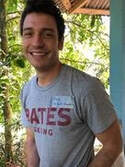 This is part 3 of a 3 part series spotlighting this year’s recipients of the Bobbi Ryder Migrant Health Champion Award. These individuals are pursuing educational opportunities that further their work to ensure access to quality healthcare for Agricultural workers and their families. #AgWorkerAccess Name: Gary R. Kersbergen Health Center: Maine Mobile Health Program – Augusta ME Health Center Role: Community Health Worker Educational Goal: Pursuing an MD degree Please tell us a little bit more about what you’re studying and how you are going to apply that in your work with Ag Workers? I will be attending the MD program at the Geisel School of Medicine at Dartmouth College in the fall. After working at a migrant farmworker health center during college, and for two years after completing college, I hope to return to serve the migrant farmworker as a provider. Working in a migrant health center was incredibly formative for me, and I aspire to advocate and serve the migrant farmworker community as a medical provider. To me, providing essential healthcare to those who have been neglected and rejected by the communities in which they work to provide the fresh food that we enjoy is an important act of resistance, gratitude, and advocacy. What led you to become an Ag Worker Access Champion? I first began working with migrant farmworkers at the Maine Mobile Health Program during college. I had grown up in Maine and knew about its large agricultural bounty of wild blueberries, broccoli, and dairy, yet I was unaware of the migrant workforce that drives these industries. As I began to learn more about the migrant workforce in Maine I realized that not only were these workers providing the labor behind my home state's largest products and exports, providing the same food that me and my family had enjoyed for years, but also that they were living on the margins of society. They were not recognized or acknowledged in their community because of what they looked like and the language that they spoke. The abusive nature of their condition and work as migrant farmworkers was causing them to suffer. Access to healthcare with dignity was a right that I believe needs to be bestowed upon them, and on all people. Why do you care about increasing access to care for Ag workers? I believe that increasing access is an act of gratitude and respect for the work of migrant farmworkers, I believe that it is an act of resistance to systems of racism and classism that disenfranchise them, and I believe that it empowers them to continue their work with pride and dignity. What advice would you give to individuals interested in/considering a career in migrant health? Never forget about the patients and the populations you want to serve. Always keep those connections and communities close to your heart. How did you hear about the NCFH scholarship program? Through the wonderful and supportive migrant health center where I have worked for the past two years, the Maine Mobile Health Program. About the Bobbi Ryder Migrant Health Scholarship Award: Since 1984, NCFH has awarded more than $220,000 in scholarships to health center staff and board members to assist them in in pursuing their educational goals and to contribute to the development of the Community Health Center workforce. The award is named in honor NCFH’s former CEO and lifelong Migrant Health Champion, Bobbi Ryder.
These scholarship awards are made possible through funds raised from sales of NCFH commemorative fine art prints and posters.
August 6, 2020 - The latest issue of NCFH News is now available!
Stay informed of our events, products and resources, as well as news from the migrant health center community. Sign up to have NCFH news delivered to your inbox every month. This is part 2 of a 3 part series spotlighting this year’s recipients of the Bobbi Ryder Migrant Health Champion Award. These individuals are pursuing educational opportunities that further their work to ensure access to quality healthcare for Agricultural workers and their families. #AgWorkerAccess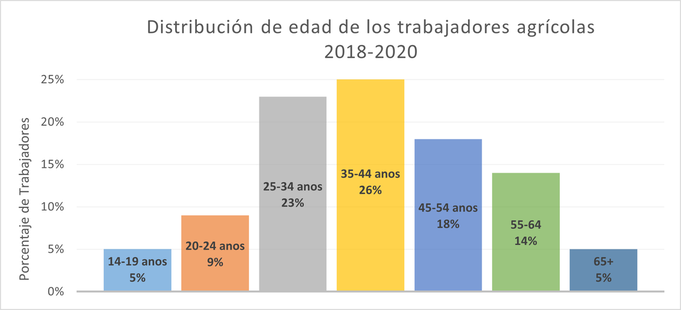 Name: Noemi Velasquez Health Center: Community Health Centers of the Central Coast – Santa Maria CA Health Center Role: Behavioral Health Outreach Coordinator Educational Goal: Pursuing a degree in Social Work Please tell us a little bit more about what you’re studying and how you are going to apply that in your work with Ag Workers? Agriculture workers are the backbone of our community; as they provide the vegetables and fruit for our sustained health. They pick the food that feeds the nation. However, they suffer from food insecurity, depression, anxiety as well as economic and social barriers. The inequities faced by Ag workers is the driving force that has pushed me to continue my education. I am currently working on obtaining my Bachelor’s degree in Social Work at Humboldt State University. While working at the Community Health Centers of the Central Coast; I encountered a tremendous need for education around behavioral health services. There is a lot of stigma around mental health. I want to work on eliminating this as it causes barriers to care. My goal is to be able to connect with individuals who need healing; to assist Ag Workers in overcoming their traumas caused by poverty. If we work closely with Ag worker parents, then the children will have more stable lives that will change the outcomes for the generations to come. As we see unrest in our country, we hope this leads to more equitable and equal benefits to health and behavioral health services. Agriculture workers cultivate the food that we all need and are essential in all our lives. Ag Workers should have equal access to health. What led you to become an Ag Worker Access Champion? Championing for the Ag Worker Access was a way to bring awareness and highlight the need for sustained health services for our Ag workers. It was important for our health center staff to collaborate on the national level to increase accessibility to health services amongst the Ag workers. Working closely to make sure that we were reaching everyone and creating equitable health care and accessibility to agriculture workers was important on all levels. For me it was personal! When families and individuals come into the health center I see them as if they were a part of my family. I see my grandparents and parents, my brother and sisters who worked picking strawberries and squash and needed preventive health services. I also see the individual that helped my father when he first stepped into the health center for assistance. The assistance he received literally saved his life. So being an Ag Worker Champion is not only a commitment of mine but an obligation to link and create accessible health services that are geared at reaching this population. Why do you care about increasing access to care for Ag workers? The commitment to farm workers grows out of the passion and need to provide adequate accessible health services to a community I honorably come from. I am dedicated in bringing awareness and light to the issues that Ag Workers face in our country. Throughout history the farm workers have been marginalized which have caused health inequity. I want to be part of the voice that brings awareness, and advocacy for agriculture workers to have access to high quality healthcare and social services that enables our communities to thrive and live healthy lives. What advice would you give to individuals interested in/considering a career in migrant health? The advice I would give someone interested in or considering a career in migrant health would be to be patient, compassionate, and understanding. Be a voice an advocate for the community that is most underrepresented and revered not important. Understand that Ag workers are essential to our sustenance and deserve to be treated with the up most respect. Working with Ag workers is a humbling and rewarding experience. The workers embrace you with humility and respect; you become part of their family. The workers think collectively as they come from communal communities in their respective territories. This work is important and going into this field means you have to be nonjudgmental, compassionate, and culturally sensitive. This enables allies, health, and mental health providers in the field to represent and speak on behalf of the most vulnerable yet important human beings in the world because without them we would not have food. How did you hear about the NCFH scholarship program? I heard about the Bobbi Ryder scholarship from my supervisor when I first started working for Community Health Centers. And later had the honor of meeting Bobbi Ryder at a Farmworker Health Conference. Bobbi Ryders commitment to farmworkers has been inspirational to a lot of individuals working in this field. I’m humbled and grateful to have been selected for this award. About the Bobbi Ryder Migrant Health Scholarship Award: Since 1984, NCFH has awarded more than $220,000 in scholarships to health center staff and board members to assist them in in pursuing their educational goals and to contribute to the development of the Community Health Center workforce. The award is named in honor NCFH’s former CEO and lifelong Migrant Health Champion, Bobbi Ryder.
These scholarship awards ae made possible through funds raised from sales of NCFH commemorative fine art prints and posters.
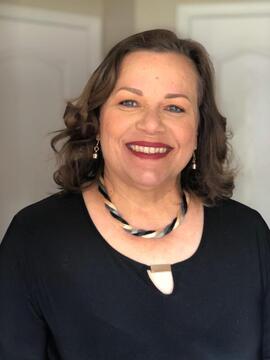 What comes to mind when you think about physical activity? Many people think about something challenging, like running, doing aerobics, using a treadmill, or even joining a gym. But the truth is there are different ways to stay active – you don’t need to run a marathon! Slowly increasing your physical activity each week is enough. “As you get started, try different activities until you find one that you like,” says Yusvelys Garcia, a trained lifestyle coach at Hispanic Federation, a lifestyle change program in Florida. Yusvelys loves encouraging her program participants to find routines that work for them. Doing physical activity regularly can help you reverse or manage prediabetes, which is when a person’s blood sugar levels are higher than normal but not yet high enough for a type 2 diabetes diagnosis. People with prediabetes can participate in the Centers for Disease Control and Prevention’s (CDC) National Diabetes Prevention Program (National DPP) to cut their risk of developing type 2 diabetes in half. “There are people who refuse to do physical activity because they think it’s just about going out for a run or going to a gym,” says Yusvelys. “One of the participants of the lifestyle change program told me that she doesn’t like walking, but she loves to decorate her house. We worked together to take advantage of her favorite hobby and find ways for her to exercise as she changes curtains or rearranges furniture at home. It’s all about identifying small changes that each person can make to stay active.” There are many activities you can do, like dancing, taking your dog for a walk, working in your garden or playing with your grand kids. The important thing is to find an activity that you enjoy and that you can do based on your physical condition. “Tracking physical activity is very important because it can help people become more aware of how much physical activity they are doing and how much more they could do,” says Yusvelys. “Ideally, every person would do [at least] 30 minutes of physical activity, five times a week, but it should be a step-by-step process.” “Staying active is necessary, but it can be fun! My dad is 83 years old and no matter what happens, he goes for a walk for at least 30 minutes every day. Anyone can do it, as long as there’s commitment,” says Yusvelys. If you have prediabetes and don’t know how to begin to make changes to improve your health, ask your doctor about the CDC’s National Diabetes Prevention Program OR a CDC-recognized lifestyle change program.As part of the program, you will work with a lifestyle coach like Yusvelys that will help you stay physically active, reach and maintain a healthy weight, eat healthier, and manage stress to prevent type 2 diabetes. Visit our Diabetes Resource Hub for more information about the prevention and self-management of diabetes. Start moving more today! Not sure how to get started? Try one of these activities:
View/Download Spanish version of this blog post. |
The National Center for Farmworker HealthImproving health care access for one of America's most vulnerable populations Archives
July 2024
Categories
All
|

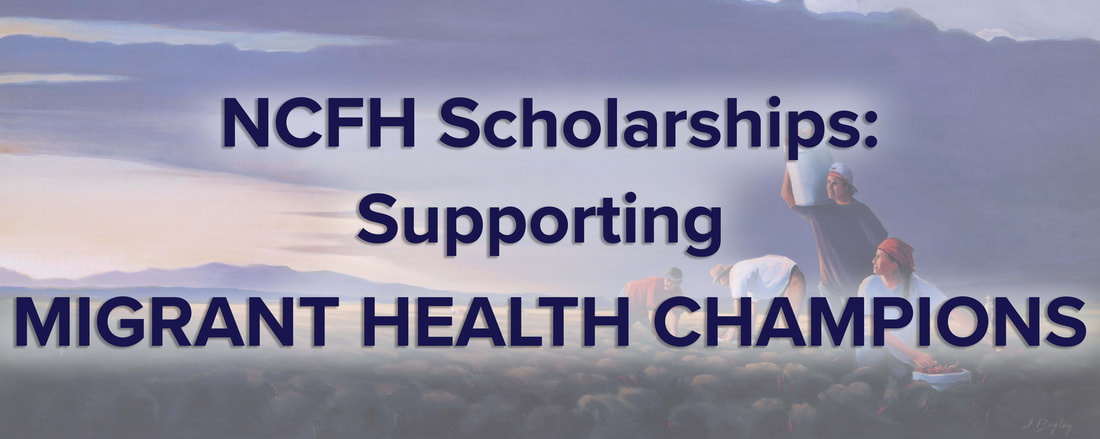

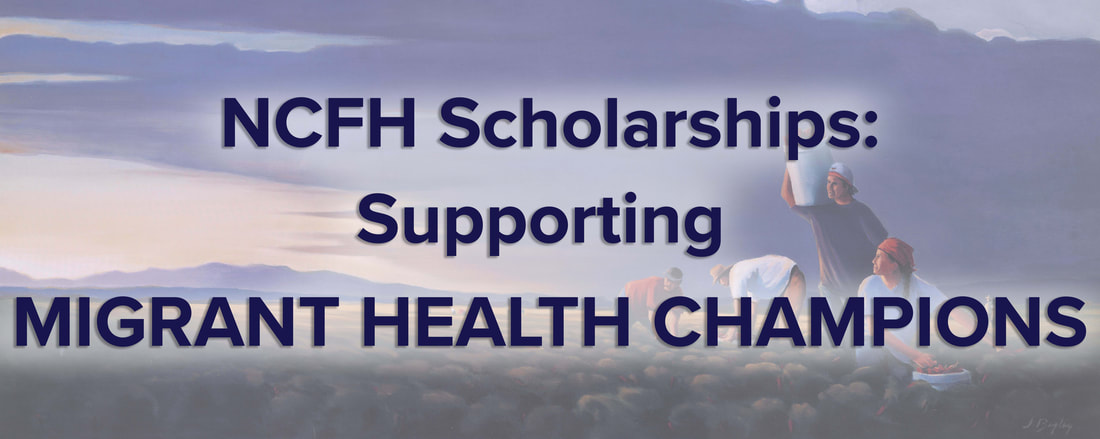
 RSS Feed
RSS Feed